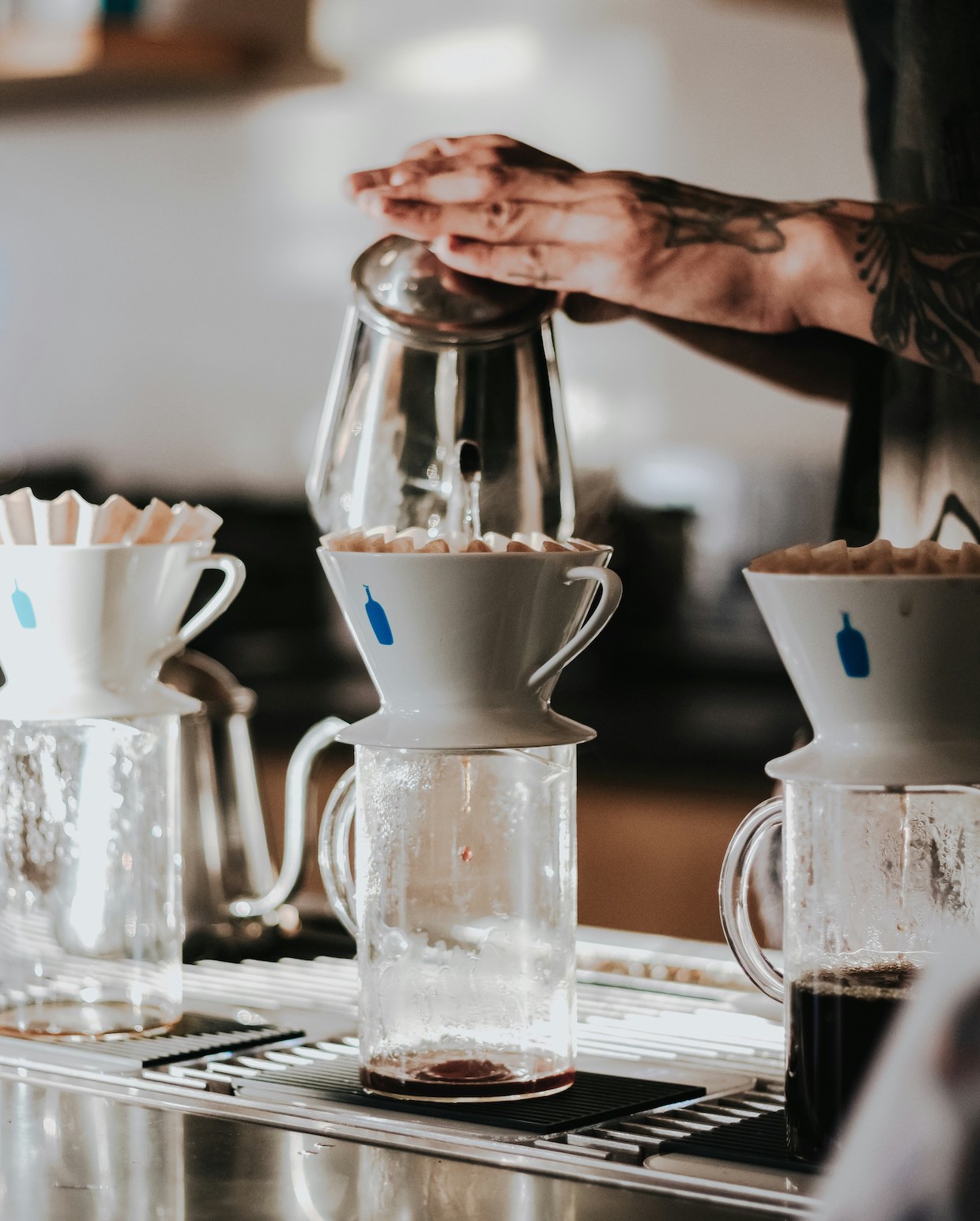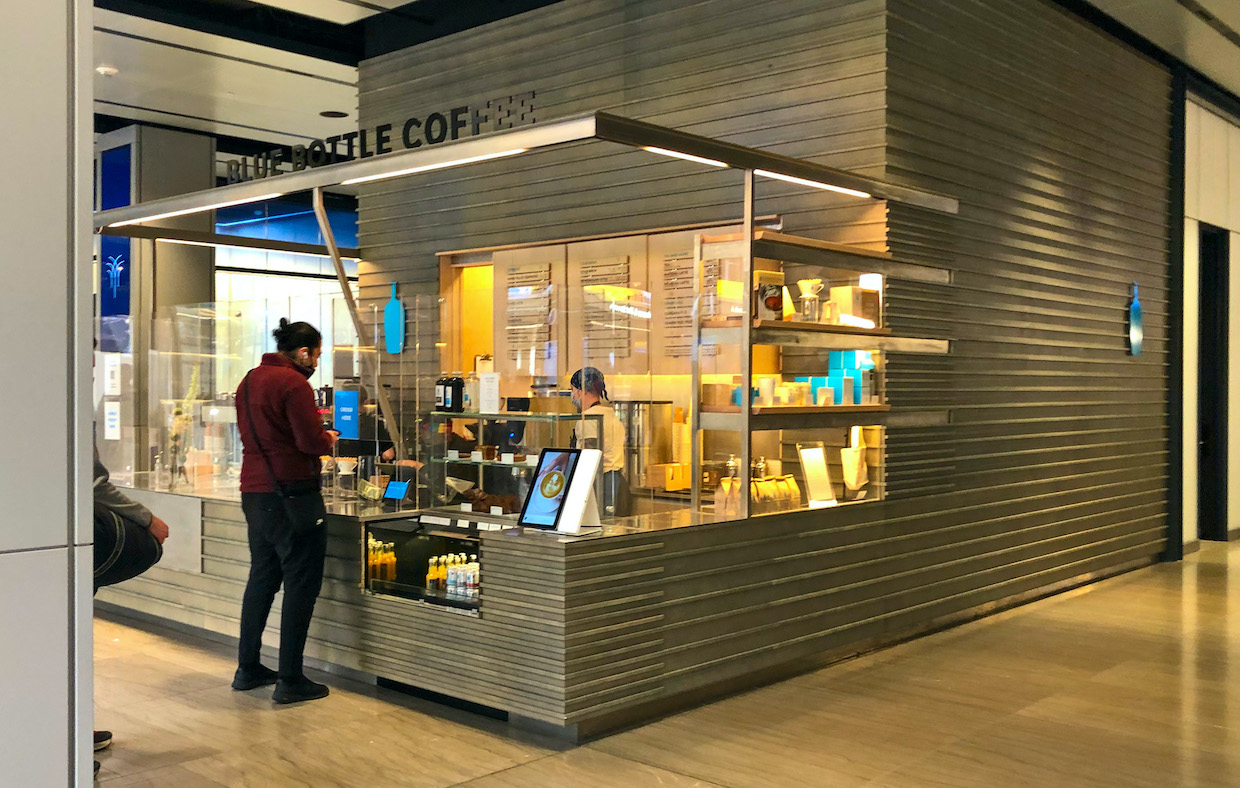California-based roaster-retailer Blue Bottle Coffee said it has achieved carbon neutrality for the calendar year 2024 while promising future investments in regenerative agriculture and climate resilience in its supply chain.
The announcement follows a carbon neutrality pledge made in 2021 promoting the in-house sustainability scheme. In an announcement today, the Nestlé-owned company said that it reduced its greenhouse gas (GHG) emissions intensity by 18.4% from a 2018 baseline, while compensating for remaining emissions by purchasing “high-quality” carbon removal credits.
The company did not note any third-party carbon neutrality certifier in the effort, but said the 18.4% reduction followed Science Based Targets initiative (SBTi) guidelines.
According to the announcement, the three-year effort lowered emissions intensity across several hotspots, including a 25% reduction tied to green coffee sourcing, a 16% reduction in dairy-related emissions by switching to plant milks as a default, and a 67% reduction in electricity intensity through renewable energy in U.S. and Greater China.
Blue Bottle coffee maintains roasteries in the U.S. and Japan, with more than 120 cafes split between the U.S. and Asia, according to the company’s coffee shop locator tool.
As it looks ahead, the company said it plans to invest in regenerative agriculture initiatives within its supply chain, starting in Peru in 2026, while also supporting sector-wide efforts towards climate resilience, such as World Coffee Research’s F1 hybrid trials.
“Achieving carbon neutrality is both a milestone and a mandate,” Blue Bottle CEO Karl Strovink said in an announcement from the group. “It confirms what’s possible when we take clear, collective action. But more importantly, it helps us focus on what’s next: supporting regenerative agriculture — including improved farmer access to climate-adaptive coffee varieties — while also establishing the role of species beyond arabica within the specialty coffee category.”
The concept of carbon neutrality in the coffee industry and other sectors remains characterized by fragmentation, with little consistency regarding accounting and transparency from one organization to the next.
Companies mix different rules and scopes, such as the new ISO 14068-1 standard, which formalizes how to substantiate “carbon neutrality,” or voluntary but highly regarded playbooks like Oxford University’s “Offsetting Principles.”
Numerous peer-reviewed academic studies have noted increased demand in the carbon-offsets markets, while calling for additional scrutiny of offset credit quality and increased transparency among corporations in order to lend more legitimacy to carbon neutrality claims.
Moving forward with its regenerative agriculture efforts, Blue Bottle Coffee said it has collaborated with an unnamed sustainability consultant and “four of its largest suppliers” to “co-develop region-specific regenerative agriculture transition plans.”
Comments? Questions? News to share? Contact DCN’s editors here. For all the latest coffee industry news, subscribe to the DCN newsletter.
Related Posts
Nick Brown
Nick Brown is the editor of Daily Coffee News by Roast Magazine.








Comment